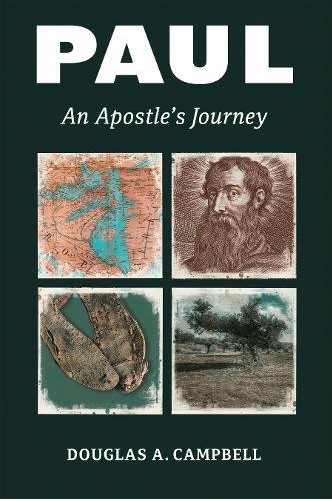 The essence of Tom Wright’s project is to show that Paul’s theology is both thoroughly Jewish and at the same time a reframing of the central elements of that Judaism around God’s revelation in Jesus Christ. Wright sees three main elements in Judaism that Paul “reworked”: monotheism, election, and eschatology. All this in his magisterial new two-volume study, Paul and the Faithfulness of God. (As an aside, Doug Moo’s review at TGC’s blog is balanced, which is good for TGC when it comes to Wright, but too focused on the soteriological questions and not enough on Wright’s important worldview-to-theology approach to understanding Paul’s theology. TGC probably needs a lengthy “description” of what Wright is saying since far too many will not read the book/s.)
The essence of Tom Wright’s project is to show that Paul’s theology is both thoroughly Jewish and at the same time a reframing of the central elements of that Judaism around God’s revelation in Jesus Christ. Wright sees three main elements in Judaism that Paul “reworked”: monotheism, election, and eschatology. All this in his magisterial new two-volume study, Paul and the Faithfulness of God. (As an aside, Doug Moo’s review at TGC’s blog is balanced, which is good for TGC when it comes to Wright, but too focused on the soteriological questions and not enough on Wright’s important worldview-to-theology approach to understanding Paul’s theology. TGC probably needs a lengthy “description” of what Wright is saying since far too many will not read the book/s.)
After Tuesday’s post giving the big picture, today I look briefly at the texts Wright focuses on in showing the story of Israel’s God finding its revelation in the story of Jesus. Hence, the story is the promise that God will return to Zion to rule as king, and Jesus is how Paul tells that story coming to fulfillment.
Hence, Wright examines these passages:
Galatians 4:1-11,
Romans 8:1-4,
1 Corinthians 8–10, especially the shema text of 1 Corinthians 8:4-6 (see below),
the creation and wisdom themes of Colossians 1,
those pertinent passages in 2 Corinthians 3–4,
and then especially Philippians 2:6-11.
The big ideas are these: God is creator, God is one (creational monotheism); God has chosen Israel (election) in Jesus; and eschatology (God has returned to Zion, has come to rule in Jesus). The way Paul describes all of this is through Exodus imagery. Hence, the reworking of Jewish themes around Jesus yet maintaining continuity with Judaism. God has returned to Zion and that return is like the Exodus, a redemptive act.
It would take a post too long to summarize each and every point he makes along the way through these passages, so I will provide his own summary:
My argument so far is that the Jewish-style monotheism of ‘divine identity’ which Paul so emphatically reaffirmed had also emphatically been redrawn around Jesus. In particular, I have argued that in several key passages we can detect the overtones of that Exodus-based narrative which formed the basis for the hope that YHWH, having long since abandoned Jerusalem to its fate, would one day return to save his people and to establish his glorious presence in the temple. As we have seen, there is excellent evidence that this was what Paul intended to convey, in one way and another, in one kind of argument or another. For him, Jesus was to be identified within the second-temple Jewish belief in who the one God was –and would be. This is the full expression of the eschatological dimension of monotheism, carrying within itself also the creational and cultic dimensions. In him, that is to say, Israel’s God had indeed returned, and to him therefore could be transferred all that had been said about ‘wisdom’ as the mode of his presence, the ‘wisdom’ through which the worlds were made. He was therefore to be discovered in biblical texts which spoke of the kyrios, translating the adonai which devout Jews said in preference for the sacred name YHWH; and, as such, was to be worshipped, and invoked in prayer. The relationship his followers enjoyed with him was to be understood, and could be spoken of, in the way that devout Israelites from ancient times had spoken of their relationship with YHWH himself. So far, so good.
But is this enough to enable us to understand why not only Paul, but apparently all his Christian predecessors and contemporaries, came to this belief? I think not. We have demonstrated that Paul (and presumably his predecessors and contemporaries) thought of Jesus in categories belonging to Israel’s God, and particularly within the narrative which spoke of long-awaited return of this God to Zion. We have not quite explained why they would think this way. This brings us to the second major hypothesis of the present chapter (689-690).
Because some get caught in a web of wondering if this way of seeing Paul might be supersessionism, I want to cite 1 Corinthians 8:4-6 to show that for Paul the classic Jewish creed — the shema — gets captured by Paul but in so doing he enters Jesus into the very heart of divine identity. Jesus is the Lord of the shema.
1Cor. 8:4 So then, about eating food sacrificed to idols: We know that “An idol is nothing at all in the world” and that “There is no God but one.” 5 For even if there are so-called gods, whether in heaven or on earth (as indeed there are many “gods” and many “lords”),
6 yet for us there is but one God, the Father, from whom all things came and for whom we live;
and there is but one Lord, Jesus Christ, through whom all things came and through whom we live.










